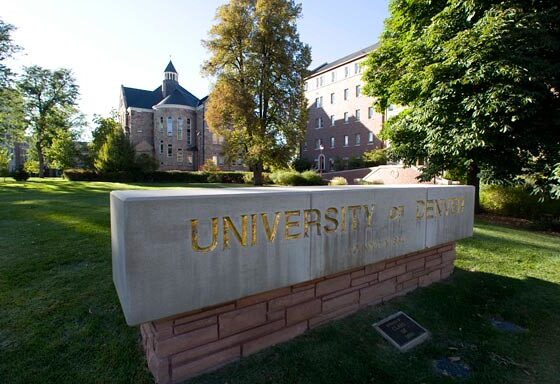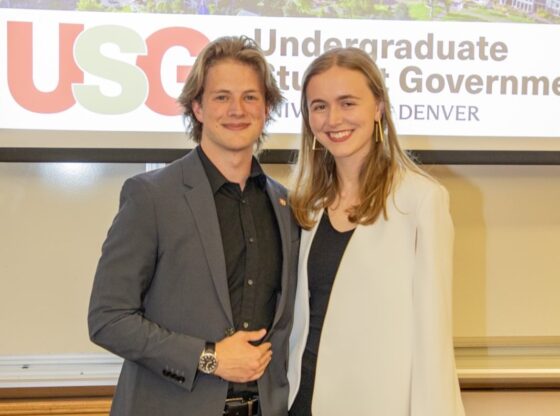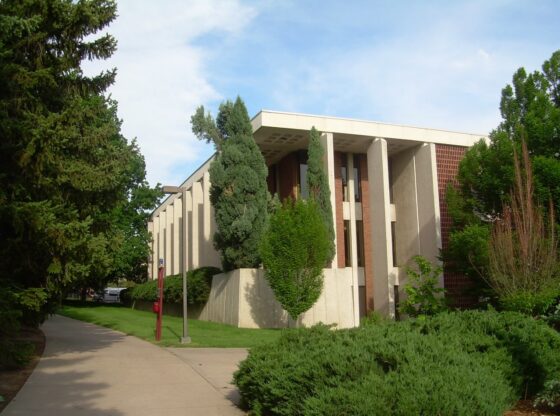On April 16, DU hosted the Internationalization Summit. Experts and educators from across the globe came together to discuss the globalization of higher education. The virtual summit was open to students and other members of DU’s community.
DU has hosted the summit annually since 2014, and it acts as an opportunity for scholars to converse about new research regarding the internationalization of higher education. Representatives from DU, other universities and experts in the international realm shared ideas about what global learning could look like and what their plans are to maintain a future of interconnectedness.
The forum began with an introduction from DU Vice Chancellor of Internationalization Uttiyo Raychaudhuri, who reflected on the effect the COVID-19 pandemic has on increased global connectedness.
“Global engagement has always been vital, and it is now more than ever. It is needed to build a future we all deserve. Building [that future] will take our will, resilience, cooperation and a global effort of contagious kindness,” Raychaudhuri said.
The keynote address of the morning was given by Himanshu Rai, the director of the Indian Institute of Management Indore. Rai emphasized the importance of higher education institutions looking beyond their campuses and striving to be globally interconnected.
Rai discussed leadership, saying socially responsible leaders use imagination and practice empathy. “As a leader, you need to imagine the whole world that you wish to see yourself in. You need to have passion, but more importantly, you need to have compassion,” Rai said.
A sustainable development panel then commenced, discussing the future of internationalization in higher education. Dr. Anthony Ogden of Gateway International Group opened the conversation. He discussed what he calls “access education”—a way of expanding modalities in the realm of international education beyond just studying abroad.
“We are able to reach new populations of students and lifelong learners,” He said when talking about virtual education opportunities. Ogden stated the importance of incorporating global connections in any college course, saying “international nuances of that discipline” should be present in the curriculum.
Samantha Martin, founder and CEO of Via TRM, builds off Ogden’s ideas. She encouraged reaching more students through digital engagement, despite criticisms that the use of technology has received.
“Technology will not solve our problems. People solve problems, and people imagine new possibilities. Technology enables those solutions and possibilities,” She said.
A professor from the University of the Free State in South Africa, Lynette Jacobs, weighed in on how a decolonization framework can remove barriers within the space of internationalization. Jacobs stated that decolonization humanizes internationalization by “recognizing structures of oppression” and affirming diversity in higher education.
To close the panel, DU alumnus and Director of Research and Communications at GMAC Rahul Choudaha explored how to ensure the success of these methods. He explained that there are waves of pushback against internationalization after global events like the 9/11 terrorist attacks and the 2008 financial recession.
Choudaha encouraged a focus on diversity, data and digitally-enhanced initiatives. He emphasized perseverance in the work towards higher education facilities becoming global institutions.
“We cannot shake our commitment to provide transformational learning experiences,” He said.
DU Chancellor Jeremy Haefner echoed this sentiment, reinforcing the university’s continued commitment to the global experience offered to students.
“The University of Denver understands that for our students to succeed after graduation, they must be prepared to enter—and more importantly to thrive in—our hyper interconnected global society and contribute to it ethically,” He said.
This year’s summit centered around sustaining international connections through technological innovations and continued commitment to study abroad programs. Looking forward, the university plans to focus on maintaining global engagement amidst realities like political polarization, social uprising and the COVID-19 pandemic.











